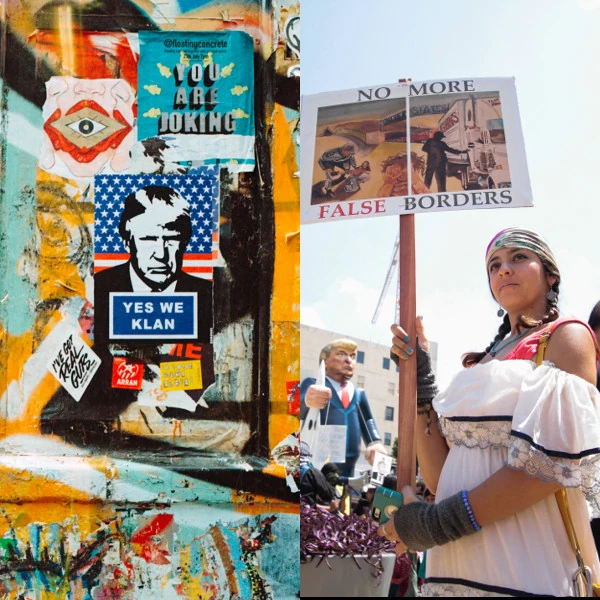Approaching Pixar’s Coco during the Trump Era
(pp. 130-144; DOI: 10.23692/iMex.18.9)
 Loading...
Loading...Prof. Dr. Sandra L. López Varela

Sandra López Varela (PhD, University of London 1996, RPA 2005) is a Professor at the Faculty of Philosophy and Literature, Universidad Nacional Autónoma de México. Her research adopts a critical and analytical stance towards economic and development growth policies to combat poverty in Mexico, as these policies interfere with heritage preservation. Results from these investigations received the Friedrich Wilhelm Bessel-Forschungspreis award of the Alexander von Humboldt Foundation in 2012. Recently, she designed a mobile application for iOS and Android Devices, ‘México Alternativo’, to preserve heritage resources within the built environment. Her most recent publications critically approach the construction of memory and identity based upon national and institutional discourses of heritage and ethnicity. She has served as President of the Society for Archaeological Sciences (2009–2011) and held the Archaeology Chair at the Executive Board of the American Anthropological Association (2012-2014).
An archaeology of media approach guides this analysis of the film Coco, a 3D animated fiction movie inspired by the Day of the Dead or Dia de Los Muertos in Mexico, and released by Pixar Animation Studios, a subsidiary of Walt Disney Studios, in 2017. In particular, I explore the tensions and contradictions within Pixar’s most successful movie at the box office in taking a stand against Donald Trump’s presentation of Mexicans as ‘rapists and drug-trafficking criminals’. I argue that this film, despite its praise by audiences and critics as a ‘pro-Mexico’ film, does ultimately not vindicate Mexico’s ‘good people’. Instead, it promotes an institutionalized nationalist image of Mexico’s heritage and identity, which goes back to the nineteenth century. Considering that Disney has the largest global market share in the film industry, Coco’s director Lee Unkrich’s good intentions to make this film ‘right’ help to disseminate and support the Mexican government in its reconstruction of an imagined sociocultural homogeneity, which marginalizes non-dominant ways of life in a culturally rich and diverse country.
La arqueología de los medios de comunicación es el marco de referencia para analizar la película Coco, inspirada en la celebración de Día de Muertos en México y que fue lanzada por Pixar Animation Studios en 2017, una subsidiaria de Walt Disney Studios. Las siguientes páginas analizan las tensiones y contradicciones dentro de esta película taquillera que según su audiencia y la crítica cinematográfica, desafía los dichos de Donald Trump durante su campaña presidencial en 2015, quien llamó a los mexicanos a violadores y delincuentes que traen drogas al cruzar la frontera. Esta elogiada película a favor de México, no reivindica a la ‘buena gente’ de México. La película promueve una imagen nacionalista e institucionalizada del patrimonio y la identidad mexicana cuyos orígenes remontan al siglo XIX. Dado que ‘Disney’ domina la industria cinematográfica, las buenas intenciones de su director Lee Unkrich de enaltecer a la cultura mexicana, como se analiza en este artículo, mas bien apoyan la ideología del estado detrás de la conformación de una ciudadanía homogénea y ocultan las formas de vida no dominantes de un país culturalmente rico y diverso.
Articles
Cécile Brochard / Oscar Torres – Poética contra política
Douglas E. Forster – Trump’s Politics of Fear
James Shelton – Narrative and the ‘Norteamericano’ in the Sicario Films
Lara Lengel / Victoria A. Newsom – Contested Border Crossings
Erica Berzaghi / Frank O’Sullivan – Trump’s Rhetoric Influence
Martina Moeller – Politics in The River and The Wall
Jessica Wax-Edwards – Re-Animating Mexicanidad
Sandra L. López Varela – Pixar’s Coco during the Trump Era
Review


